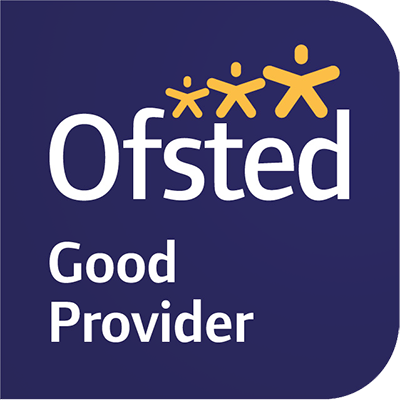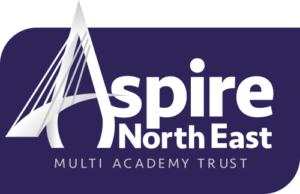Land Based Studies Curriculum Overview
Learning Journey
Knowledge Organisers
-
• Land Based Studies Autumn Knowledge Organiser
-
• Land Based Studies Spring Knowledge Organiser
-
- Studying Land Based Studies offers students the opportunity to explore a wide variety of topics that underpin the skills and qualities needed for a multitude of future careers within the land based sector.
- Allow students to acquire the skills, knowledge and interdependence required to work in this industry.
- Studying Land Based Studies teaches our students about the industries that provide us with the food we consume, energy that we use and the impact on the environment whilst focusing on the small and medium businesses within these industries.
- In this subject student, will be academically challenged through the broadness of the curriculum and the wide range of real-life scenarios that they will face which prepares students for their life beyond school.
- Our courses offer a clear assessment and intervention programme where our students are encouraged to independently strive to achieve their full potential.
- The course is tailored to build resilience and practical skills required in real life situations.
- Resilience (Aiming High Staying Positive Learning from Mistakes)
- Collaboration (Teamwork Leadership Communication)
- Creativity (Originality, Problem Solving, Independent Study)
Key Stage 4 Curriculum
Our Key Stage 4 Curriculum:
Two year KS4 with 3 lessons per week.
Download the full policy at the link above for a full break down of learning for each Term.
Academy Aim
Here at Sandhill View Academy, we aim to securely equip all of our students for life beyond school as successful, confident, responsible and respectful citizens. We believe that education provides the key to social mobility and our curriculum is designed to build strong foundations in the knowledge, understanding and skills which lead to academic and personal success. We want our students to enjoy the challenges that learning offers. And ultimately, we want students to ‘Know More, Do More and Go Further’
Our aims are underpinned by a culture of high aspirations. Through developing positive relationships, we work towards every individual having a strong belief in their own abilities so that they work hard, build resilience and achieve their very best.
Intent
The curriculum includes project-based learning, assemblies and extracurricular activities. We regularly review content to ensure we continue to meet our curriculum aims. The Outdoor Learning curriculum is planned to allow students to become immersed in the world they live in and allow them to have personal growth in the skills that are required to be a well-rounded citizen, whilst conducting a range of fieldwork linked to Geography. By completing a range of topics, students build skills that are transferable across all curriculum areas and help them put theory into practice. The Outdoor Learning curriculum will enhance pupils' self-confidence, motivation and physical skills through project-based learning. The Outdoor Learning curriculum is planned to enable all students to confidently develop knowledge and skills in the following areas:
Sequence and Structure
Our curriculum is delivered throughout Key Stage 4 (Years 10 and 11).Literacy:
We know that students who read well, achieve well. As such all subject areas are committed to providing regular opportunities to read extensively. There are a range of technical key words that are embedded throughout the course and students use these through PUSH and FRAYER models to help develop a deep understanding of these key words. A range of strategies are used to allow students to understand and develop their literacy skills such as the use of SMART reading and SMART writing tasks which allows students to focus on key words and develop their literacy skills. We use Literacy end points to help develop students literacy skills.Skills Builder
We aim to explicitly embed transferable ‘Skills Builder’ skills such as problem solving, aiming high and teamwork to prepare our students for higher education and employability skills for the future. This year in Land Based Studies we will focus on TEAMWORK including group decision making/recognising the value of others. PROBLEM SOLVING by exploring complex problems by analysing cause and effect and understanding through this through research. Furthermore, we want our students to AIM HIGH by setting goals, prioritising tasks and involving others.
How does our Curriculum cater for students with SEND?
Sandhill View is an inclusive academy where every child is valued and respected. We are committed to the inclusion, progress and independence of all our students, including those with SEN. We work to support our students to make progress in their learning, their emotional and social development and their independence. We actively work to support the learning and needs of all members of our community.
A child or young person has SEN if they have a learning difficulty or disability which calls for special educational provision to be made that is additional to or different from that made generally for other children or young people of the same age. (CoP 2015, p16)
Teachers are responsible for the progress of ALL students in their class and high-quality teaching is carefully planned; this is the first step in supporting students who may have SEND. All students are challenged to do their very best and all students at the Academy are expected to make at least good progress.
- Specific approaches which are used within the curriculum areas include:
- 1:1 support with practical tasks e.g. LSA within lessons to allow students to access controlled assessment and exam content.
- Resources adapted to accommodate a range of SEND needs.
- Seating plans to allow for peer/teacher support.
- Differentiated and feedback tasks outlined clearly on the board or in teaching resources and linked to assessment criteria at KS4.
- Group work and discussion tasks to develop confidence in leadership and ownership of learning.
- Work is always uploaded onto Teams in order for both students and parents to work outside of the lesson.
How does our curriculum cater for disadvantaged students and those from minority groups?
As a school serving an area with high levels of deprivation, we work tirelessly to raise the attainment for all students and to close any gaps that exist due to social contexts. The deliberate allocation of funding and resources has ensured that attainment gaps are closing in our drive to ensure that all pupils are equally successful when they leave the Academy. More specifically within the Land Based studies department, we;
- Work to identify barriers, interests and what might help each pupil make the next steps in learning by using lead practitioner research and actions to support.
- Provide students with all materials to reduce financial burden on families.
- Provide support into work placements within year 10 in the Land Based Industries.
- Targeted support for under-performing students completed on a 6 weekly cycling following data capture
How do we make sure that our curriculum is implemented effectively?
- Staff have regular access to professional development/training to ensure that curriculum requirements are met.
- Curriculum resources are selected carefully and reviewed regularly.
- The subject leader’s monitoring is validated by senior leaders.
- Staff have regular access to professional development/training to ensure that curriculum requirements are met. Staff also work in partnership to share good practice within the trust as well as networking in the local area.
- Effective assessment informs staff about areas in which interventions are required. These interventions are delivered during curriculum time to enhance pupils’ capacity to access the full curriculum.
- Curriculum resources are selected carefully and reviewed regularly.
- Assessments are designed thoughtfully to assess student progress and also to shape future learning.
- Assessments are checked for reliability within departments and across the Trust.
How do we make sure our curriculum is having the desired impact?
- Examination results analysis and evaluation, reported to the senior leaders.
- Termly assessments-analysis and evaluation meetings
- Lesson observations
- Learning walks
- Book scrutiny
- Regular feedback from Teaching Staff during department meetings
- Regular feedback from Middle Leaders during curriculum meetings
- Pupil surveys
- Parental feedback
- External reviews and evaluations




